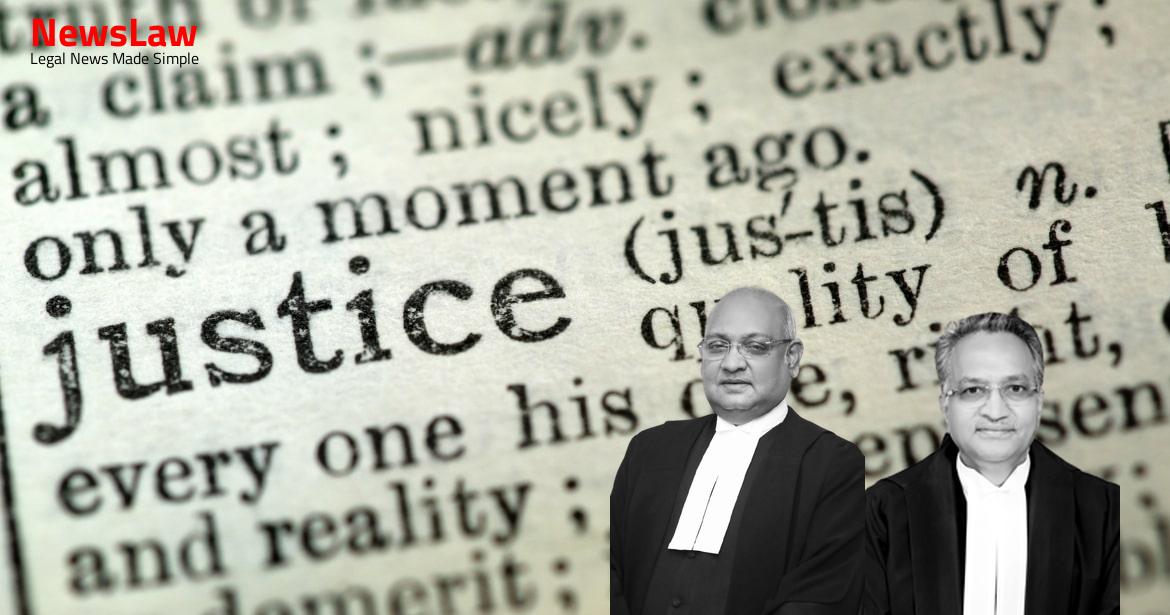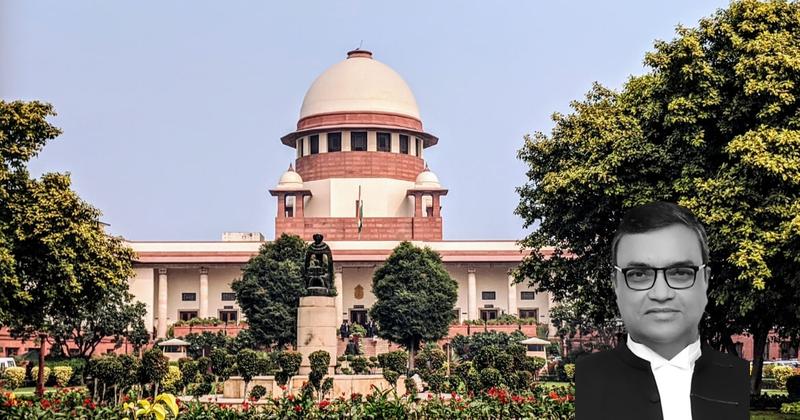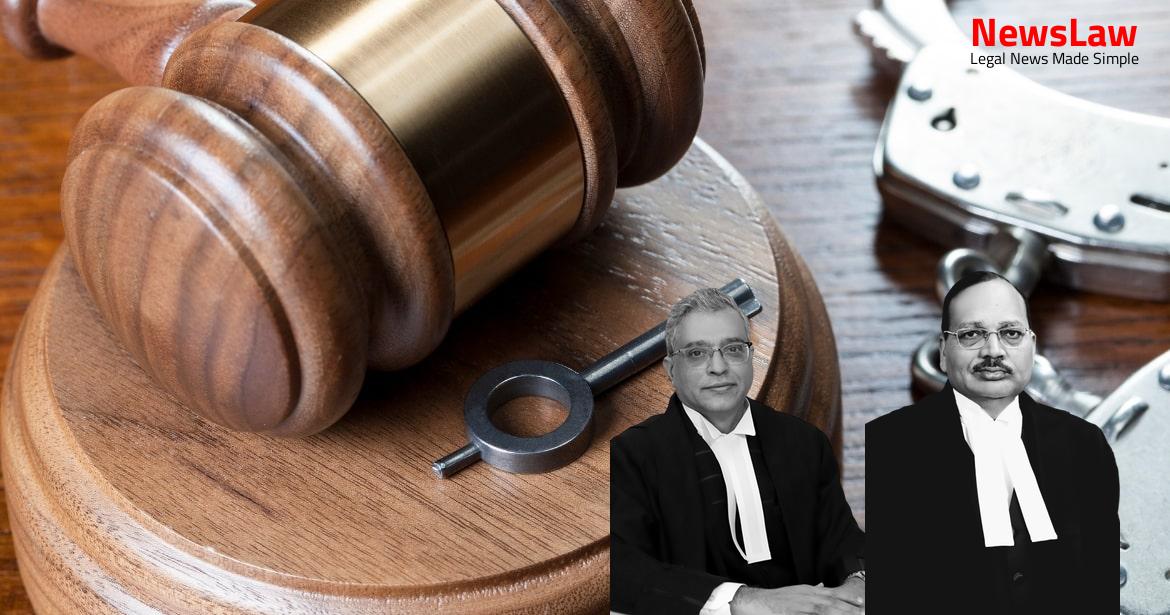In a significant legal decision, the Supreme Court of India has reinstated the fee determination by the Telangana Admission and Fee Regulatory Committee for the block period 2016-17 to 2018-19. The case, centered around the balance of educational expenses and financial sustainability, saw the committee’s authority and expertise upheld. This ruling is a crucial development in ensuring fair fee structures in educational institutions without resorting to profiteering or capitation fees.
Facts
- The Fee Regulatory Committee fixed a fee structure for B.E. and B.Tech courses for the block period 2016-17 to 2018-19.
- The fixation was challenged by the institutions and was not approved by the Single Judge.
- The matter was remanded to the Committee for reconsideration.
- The State of Telangana and the Fee Regulatory Committee appealed the decision, but the Division Bench upheld the ruling.
- Rules were framed under the Telangana Educational Institutions Act, 1983.
- The parent’s association also challenged the orders directly before the Court after being granted leave to do so.
- The High Court fixed fee structures of Rs.1,60,000/- and Rs.1,37,000/- almost at a break-even point for the institutions.
- TAFRC recommended fees of Rs.97,000/- despite accepted audited expenditure of Rs.29.26 crores, which is significantly lower than justified fees of Rs.1,58,675/- per student.
- Institutions claimed Rs.1,15,400/- based on expenses of equivalent government colleges and lack of state subsidy, but TAFRC recommended lower fees.
- The High Court did not find TAFRC acting contrary to laws or principles despite potential different methodologies in determining inflation and furtherance.
- Guidelines ensure TAFRC considers various factors to arrive at a balanced fee structure without allowing profiteering or capitation fees.
- State was not reimbursing fees for students whose parents earned less than Rs.2 lakh per year.
- High Court’s interference with TAFRC’s fee recommendations through judicial review was not justified.
- TAFRC consulted with institutions and considered their inputs in determining fee structures.
- Initially, TAFRC set fees at Rs.86,000/- and Rs.91,000/-, which were later uniformly increased to Rs.97,000/- per student after remand by the High Court.
- TAFRC did not act arbitrarily by ignoring relevant materials or relying on extraneous information without involving the institutions.
Also Read: Supreme Court Upholds Conviction in POTA Case: A-10 (Parvez Khan Pathan)
Arguments
- The determination of the fee structure by the TAFRC has been deemed quasi-judicial and challengeable under Article 226 of the Constitution.
- This determination does not imply an adversarial dispute between TAFRC and the respondent institutions.
- Disallowed claims by the TAFRC, not meeting the approval of the expert committee, do not make fee fixation arbitrary.
- The three-year block period for fee determination has ended, and actual expenses are now available.
- The Telangana Admission and Fee Regulatory Committee has set guidelines for private unaided professional institutions to submit fee proposals for 2016-2019.
- The parents association argued that giving an undertaking to abide by the final decision does not prevent them from challenging the fee structure set by the High Court.
- They believe that simply agreeing to follow the decision does not bar them from questioning the determined fee structure.
- The parents association maintains that they should be allowed to challenge the fee structure even after giving their undertaking.
Also Read: Urs Family Property Dispute: Supreme Court Decree
Analysis
- Statutory recommendations made by domain experts may not always satisfy the State Government but should be left to experts with knowledge in the field.
- Court must provide reasons if it believes a statutory authority is unable to make an impartial decision and must justify taking over the decision-making process.
- Judicial review must have clearly defined parameters and not exceed its limits, especially in matters involving domain experts like finance and economics.
- Courts should exercise restraint in questioning recommendations of expert committees in economic and financial matters.
- The court must not act as an appellate authority when expert opinions are involved and should not interfere unless there is arbitrariness, irrationality, or a violation of the law.
- Experts in economic matters must be given latitude and the court must not encroach on executive or legislative domains.
- The court should not interfere in economic policies and decisions made by financial experts unless there is illegality or a manifestly erroneous exercise of power.
- The TAFRC, a statutory body headed by a retired High Court Judge, consists of domain experts from various fields including finance and government representatives.
- The TAFRC has the power to frame its procedures, and its fee fixation guidelines have been framed in accordance with regulations notified by the Government.
- The recommendations of the TAFRC are subject to judicial review to ensure adherence to constitutional principles of reasonableness, fairness, and the law.
- The TAFRC’s determination of fee structure is quasi-judicial and can be scrutinized for adherence to legal principles.
- Judicial review is against the decision-making process, not the decision itself, and the court cannot act as an appellate authority of the TAFRC.
- The High Court’s role is to correct errors in the decision-making process, not to make decisions itself.
- The High Court erred in redetermining fee structures for institutions instead of leaving it to the TAFRC’s expertise.
- The TAFRC’s role is to ensure a justified fee structure without profiteering or capitation fee, balancing financial gain with educational needs.
- The TAFRC must be allowed to scrutinize fee proposals to justify the fee structure submitted by institutions.
- Flexibility in fee determination is necessary but not at the expense of inhibiting the TAFRC’s statutory functions.
- The AFRC must consider factors like location, nature of course, infrastructure cost, administration expenditure, and surplus for institution growth when prescribing fees.
- Factors like revenue foregone due to fee waivers for certain student categories must also be taken into account.
- The TAFRC guidelines for fee structure submission are detailed and elaborate.
- Rules 4(ii) and 4(iv) outline the factors the TAFRC must consider for fee prescription, ensuring fees are justified and do not lead to profiteering or capitation.
- The TAFRC consists of various members including representatives from regulatory bodies like AICTE, MCI, and others, as well as special invitees.
- Rule 4 empowers the TAFRC to scrutinize proposed fee structures from educational institutions to prevent unjustified fees.
- The High Court exceeded its jurisdiction by interfering with the recommendation of the TAFRC.
- The cases of K.S. Jagannathan and Badrinath are not relevant to the present case regarding economic recommendations by a statutory committee.
- The grounds stated by the High Court do not warrant usurpation of the decision-making jurisdiction of the TFARC.
Also Read: Promissory Estoppel and Public Interest: Union of India vs. M/s Dharampal Satyapal Ltd.
Decision
- The bank guarantees furnished by the respondent institutions as directed by the High Court need to be activated.
- Action must be taken in accordance with the law to protect the interests of the students.
- The High Court orders are set aside.
- The recommendation of the TAFRC dated 04.02.2017 for the block periods 2016-2017 and 2018-2019 is reinstated.
- The appeals are allowed.
Case Title: VASAVI ENGINEERING COLLEGE PARENTS ASSOCIATION Vs. THE STATE OF TELANGANA
Case Number: C.A. No.-005133-005133 / 2019



